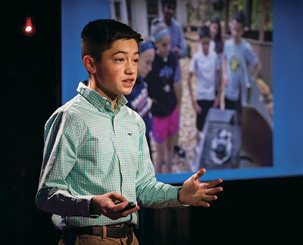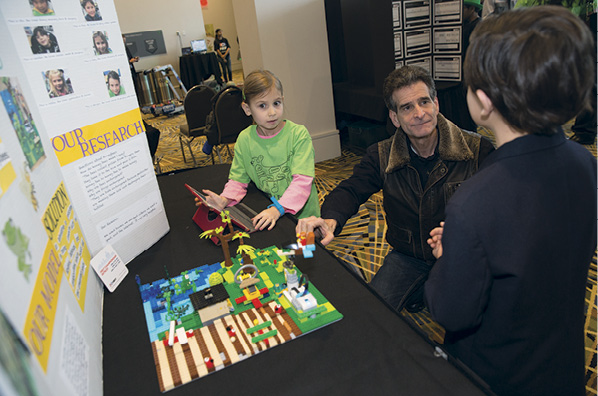Robotics: The Only High School Sport Where Every Kid Can Go Pro
 FIRST® Builds Momentum for Robotics as Official Extracurricular Sports Activity; Texas Joins Growing List of States to Sanction Robotics Program as Official Sport
FIRST® Builds Momentum for Robotics as Official Extracurricular Sports Activity; Texas Joins Growing List of States to Sanction Robotics Program as Official Sport
FIRST® announced a major step forward in the movement to sanction robotics as an official extracurricular sports activity in high schools across the country. This announcement coincides with the launch of a statewide robotics program in Texas, implemented in collaboration with its state activities association and FIRST® in Texas. This pilot program includes opportunities to make robotics a full-fledged sport, accessible to students throughout the state. Texas joins Connecticut and Minnesota in leading the way in this effort.
“Robotics is a sport for the 21st century. The skills students can learn, including teamwork, collaboration, and problem solving, are the same as those learned in other sports, but unlike most sports, robotics provides all students—no matter their background or physical ability—the opportunity to become a STEM (science, technology, engineering, and math) professional,” said Donald E. Bossi, FIRST president. “That’s why FIRST believes all states should recognize the hard work of students, coaches, and mentors with statewide support.”
According to the National Collegiate Athletic Association (NCAA), of the eight million students who participate in high school athletics in the United States, less than 6% will compete at a collegiate level, and of that group, only a fraction will realize their goals of becoming professional athletes. In comparison, FIRST participants are two times as likely to major in science or engineering, and 89.6% of FIRST alumni are currently in a STEM field as a student or a professional.
The Texas robotics pilot program, and similar initiatives in other states, allow for FIRST teams in schools to be recognized as official sports teams and receive similar support of other such activities. These benefits include extracurricular program structures; the active support of school executives, teachers, and community leaders; and the opportunity to apply for varsity sports letters for high performance.
These efforts come at a critical time, as nationally, STEM occupations are growing 1.7 times faster than non-STEM careers—according to the Office of Science and Technology Policy. In Texas, National Instruments is working with community leaders to support initiatives and programs that will help support education workforce needs in the Lone Star State.
The pilot program in Texas, with support from National Instruments, a FIRST Strategic Sponsor and global advocate for STEM education, will engage teachers and students from 1,400 high schools and 1,500 middle schools in Texas in project-based, hands-on robotics engineering challenges.
“Robotics teams in Texas will now have the opportunity to play at the same level as traditional sports teams,” said Ray Almgren, vice president, National Instruments. “The state’s recognition of robotics means millions of students will now have access to robotics and an opportunity to learn STEM skills in a hands-on way. This is a turning point for the widespread accessibility and adoption of student robotics programs across the state and nationwide.”




